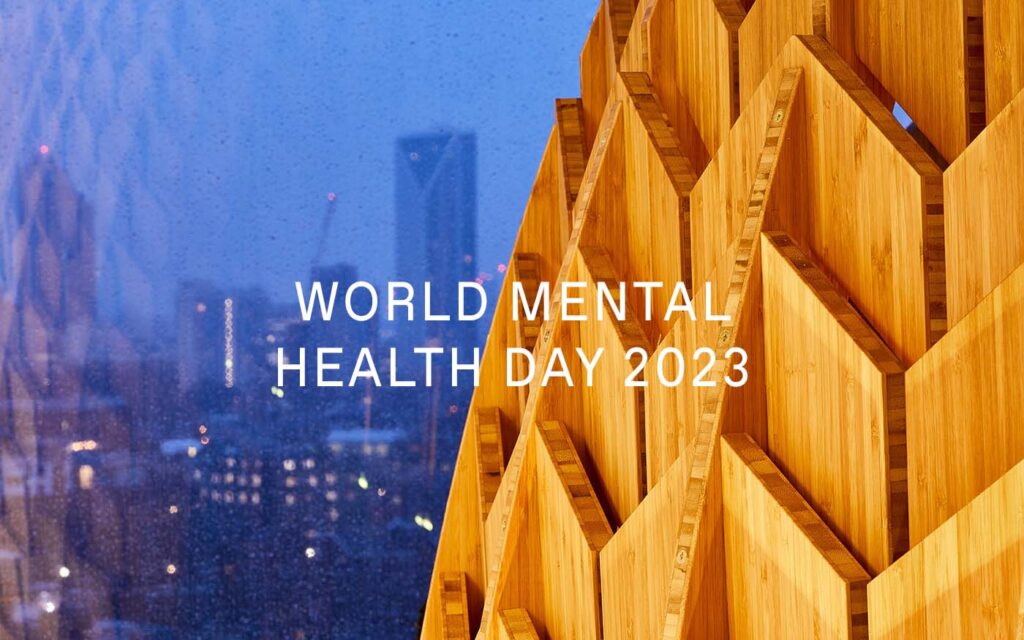
At DaeWha Kang Design, we believe in the power of thoughtful design to enhance the human experience. On this World Mental Health Day, we reflect on the profound impact that design can have on our overall wellbeing.
Design is not just about aesthetics; it's about creating spaces that nurture our mental and emotional health. Studies have shown that our environment significantly influences our mood, productivity, and overall mental wellbeing. By integrating biophilic design principles and natural materials into our projects, we aim to bring the calming essence of nature indoors.
Biophilic design incorporates elements of nature into the built environment, from green walls and indoor plants to natural light and organic materials. By immersing ourselves in spaces that echo the outdoors, we can experience improved cognitive function, reduced anxiety, and enhanced creativity. These design choices foster a sense of connection with the environment, encouraging mindfulness and promoting mental balance.
Choosing natural materials such as wood, stone, and sustainable textiles not only adds a touch of elegance to our spaces but also contributes to a healthier indoor atmosphere. These materials have proven benefits, including regulating indoor humidity, reducing pollutants, and providing a sense of warmth and comfort. By opting for sustainable, eco-friendly materials, we can create spaces that not only look beautiful but also support the wellbeing of those who inhabit them.
Working in collaboration with Mitie (our client), and Dr. Marcella Ucci from the MSc in Health, Wellbeing and Sustainable Buildings programme at the UCL, we created not only a physical space focused on enhancing employee's wellbeing, but also a pilot study to measure the impact on employees in a detailed post-occupancy study.
Human physiology is wired to seek qualities of light, view, material, and other factors common in the natural world. This project comprises two spaces designed according to those principles: a “Living Lab” that functions as an immersive work environment, and two “Regeneration Pods” that provide short-term rest and meditation functions for the Mitie employees.
The Living Lab is fully immersive, with rich and intricate patternisation, natural materials, and interactive and dynamic lighting. The room gains privacy through bamboo screens that wrap onto the ceiling above. The floor, desks, and task lights are also formed from different shades and textures of bamboo, providing a holistic organic language for the entire space.
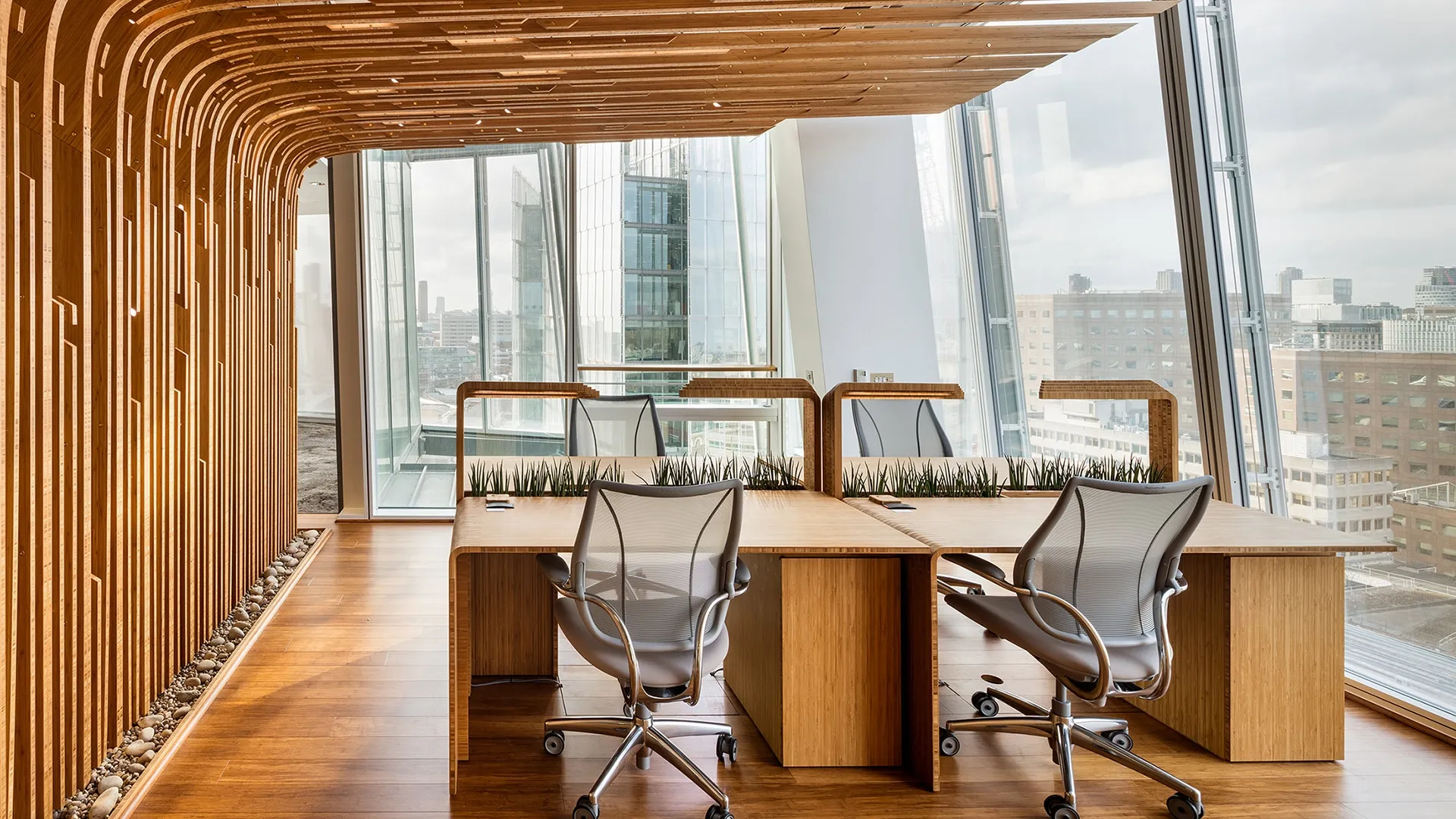
The lighting in the room is circadian, and linked to an astronomical clock—cool blue in the morning, brilliant white in the afternoon, and firelike orange as the day winds down. The light softly breathes, very subtly shifting intensity in an almost imperceptible way, giving additional dynamism to the experience.
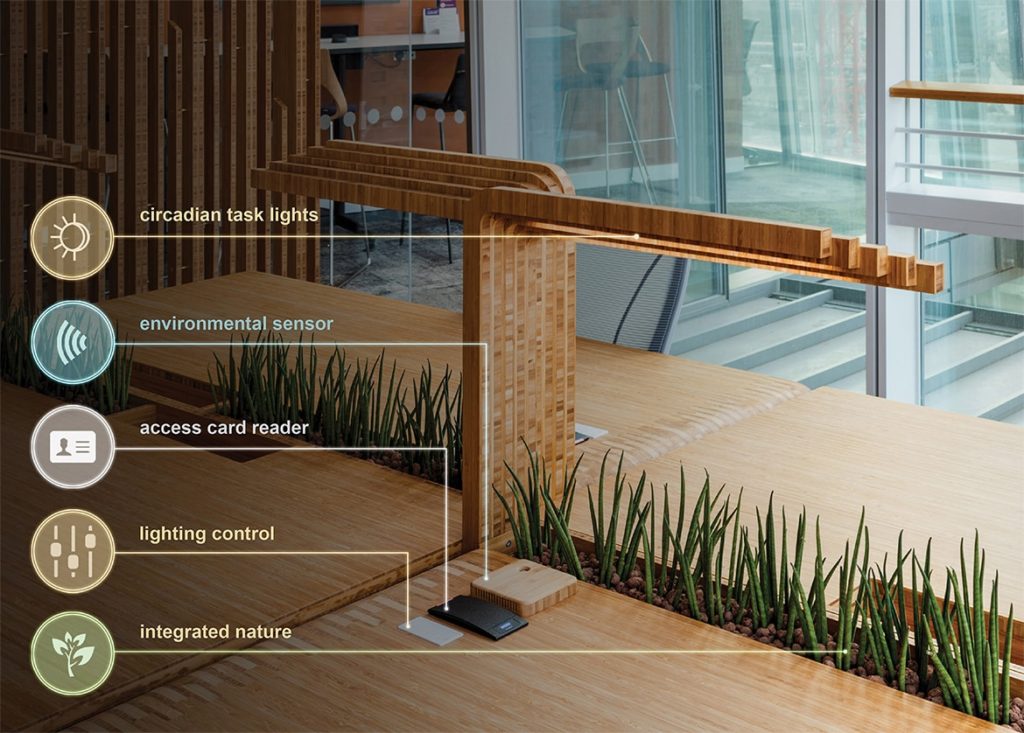
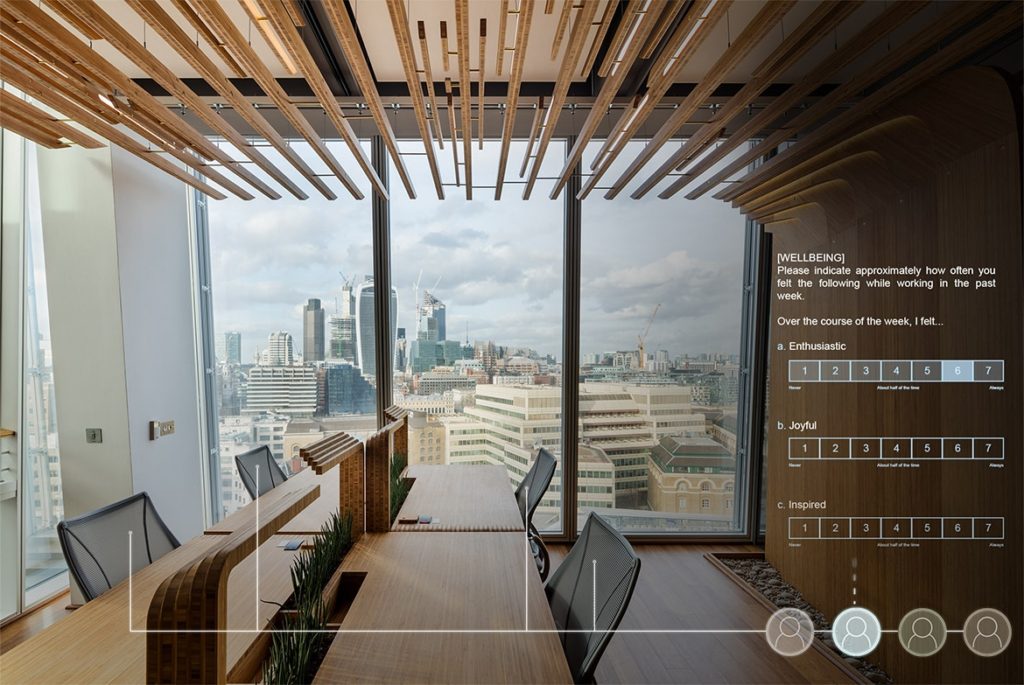
During the post-occupancy study, Mitie employees worked at these desks for four weeks at a time, answering daily surveys about their comfort, satisfaction, and emotional response. They then spent four weeks working in a control area on the same floor with similar environmental conditions but without biophilic design, and their responses were compared between the two spaces.
The study concluded that, compared to the control space, participants in the Living Lab appreciated and felt 38% more calm, relaxed, laid-back and at ease; 36% less worried, tensem anxious and nervous, and felt 60% more productive. Click here to download the full report.
While studies have established the positive impact of daylight, natural materials, and a direct visual connection with nature, aesthetic design also has a strong impact. The bamboo screens strike a balance between the regular rhythm of structural ribs and the variation and playfulness of discrete leaves that maintain a sense of transparency and intricacy in the space. The leaves catch natural light but also diffuse embedded lighting within the screen itself.
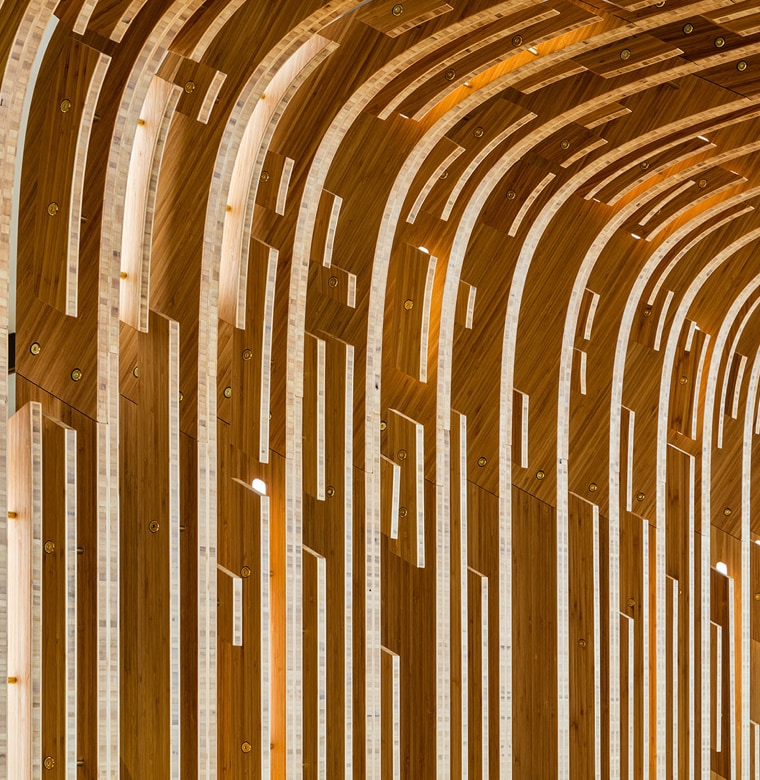
The Regeneration Pods are part of Mitie’s mental health and wellness initiative, and provide a tech-free meditative moment within the workday. Like the Living Lab, the Regeneration Pods provide a sense of shelter and refuge while also maintaining beautiful views to the outside. They are curated by a behaviour psychologist in Mitie’s team who trains staff on mindfulness and meditation.
When an access card activates a pod, a fifteen-minute sound and lightscape, meticulously crafted for mindfulness and reflection, commences. This innovative system not only offers a serene experience but also provides valuable data. By measuring usage patterns and correlating them with employee stress levels, we gain invaluable insights into the impact of our design on their overall well-being.
For more information about this project, visit here.
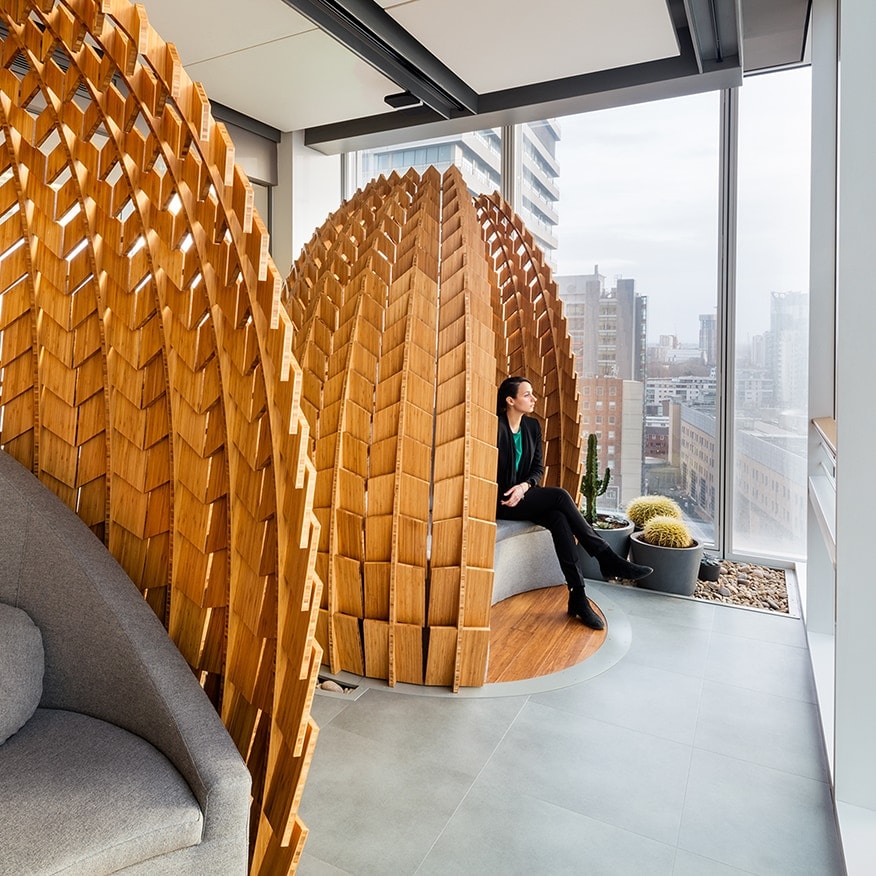
At DaeWha Kang Design, we are committed to crafting environments that prioritize mental health and happiness. Today, as we observe World Mental Health Day, let us remember the vital role that design plays in shaping our lives. Let's continue to advocate for spaces that promote mental and emotional wellness, ensuring that everyone has access to environments that uplift and inspire.